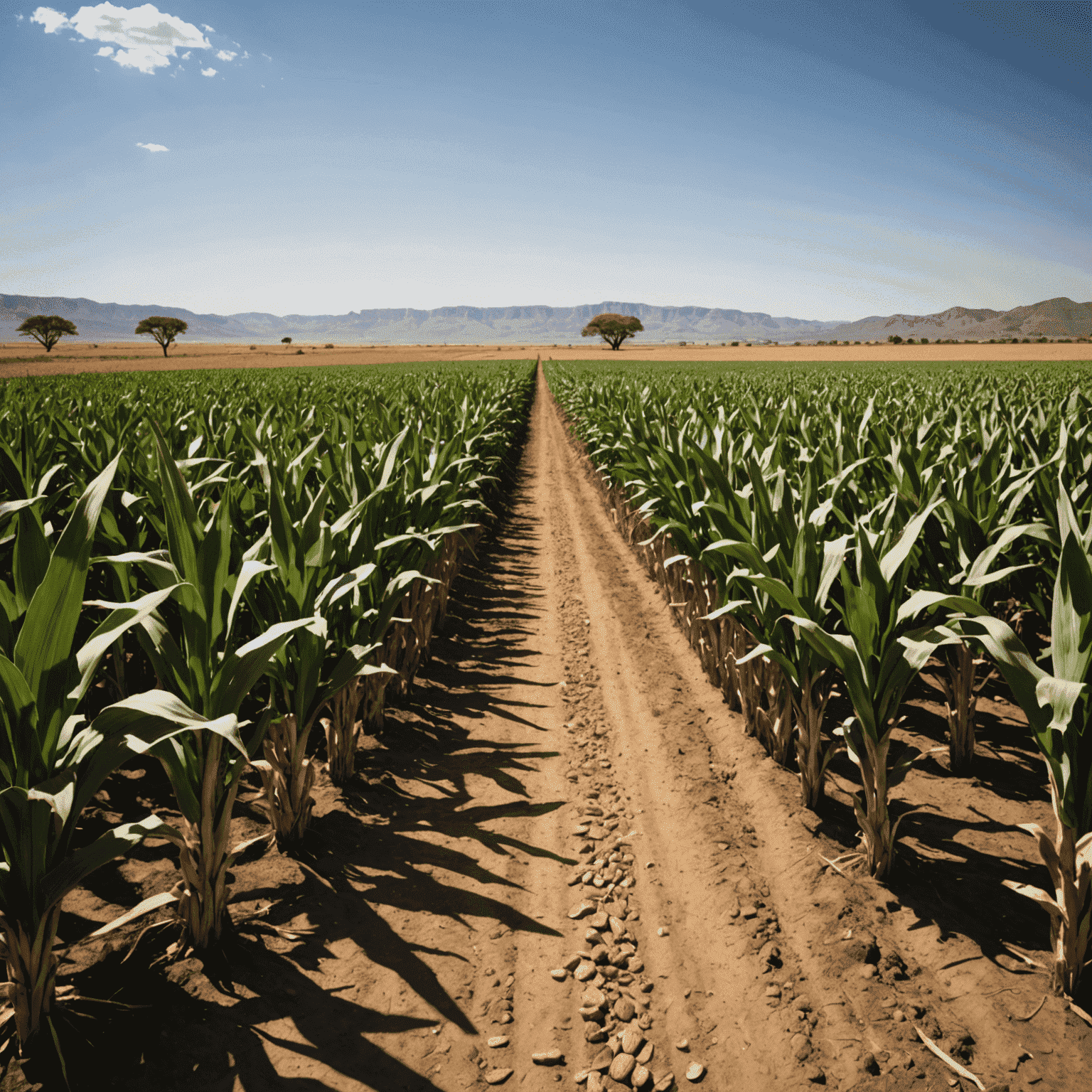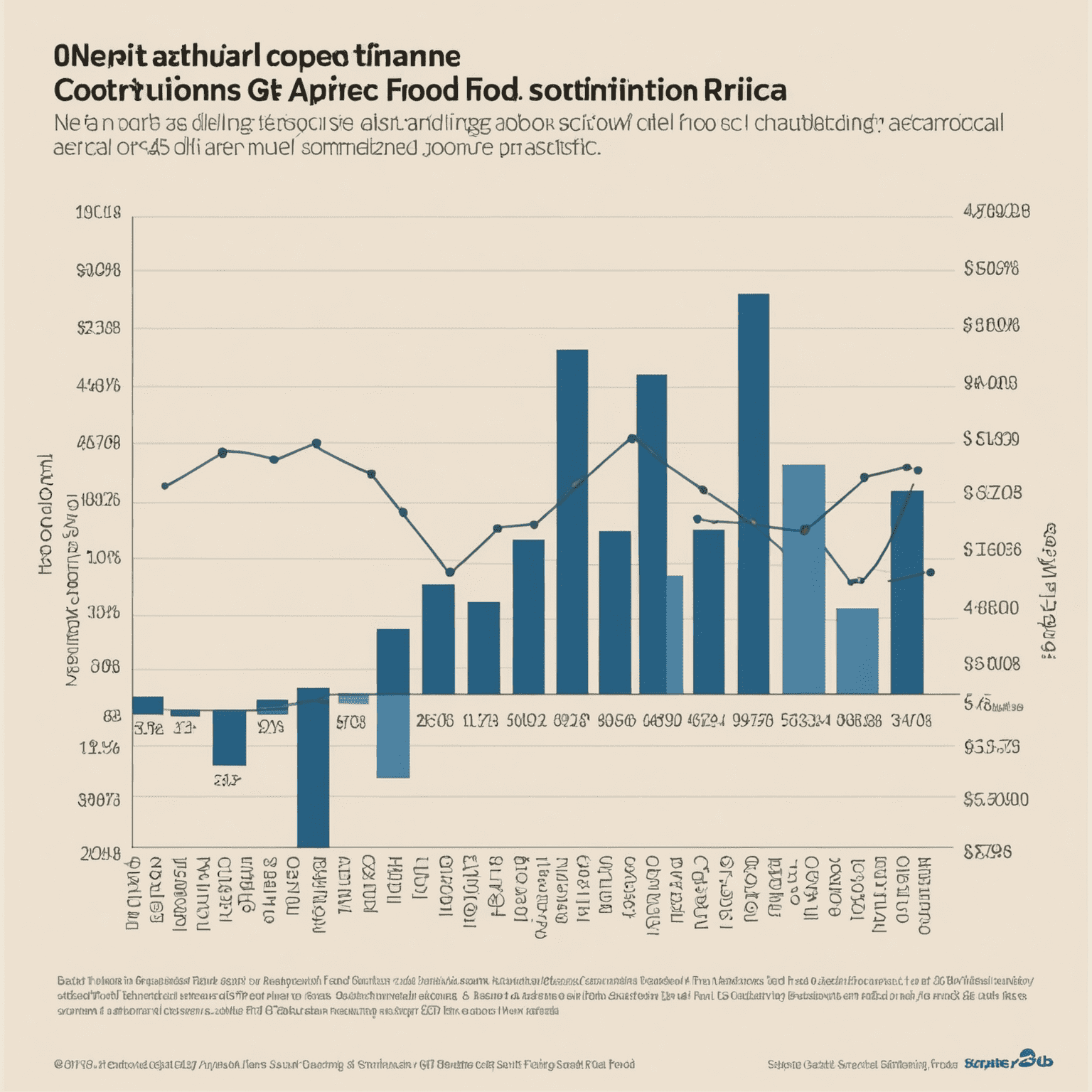Drought Impact on SA Agribusiness
Recent drought conditions have significantly affected South African agricultural supply chains, causing ripple effects throughout the agribusiness sector. This analysis delves into the current situation and its implications for the industry.

The Extent of the Drought
South Africa has been grappling with severe drought conditions, particularly in key agricultural regions. The lack of rainfall has led to depleted water resources, affecting crop yields and livestock production. This situation has put immense pressure on the entire agribusiness supply chain, from farmers to distributors and retailers.
Impact on Crop Production
Major crops such as maize, wheat, and soybeans have seen significant yield reductions. For instance, maize production, a staple in South African agriculture, has decreased by an estimated 30% compared to previous years. This shortfall has implications not only for domestic food security but also for export markets and related industries like animal feed production.

Livestock Sector Challenges
The livestock sector has not been spared from the drought's effects. Reduced grazing land and increased feed costs have put strain on cattle, sheep, and goat farmers. Many have been forced to reduce herd sizes, impacting meat and dairy supply chains. This situation has led to price volatility in the market and concerns about long-term sustainability in the sector.
Supply Chain Disruptions
The drought has created a domino effect throughout the agribusiness supply chain. Reduced crop yields and livestock production have led to:
- Increased costs for raw materials in food processing
- Challenges in meeting export commitments
- Strain on transportation and logistics due to changes in product volumes
- Pressure on storage facilities to manage fluctuating inventory levels
Economic Implications
The agricultural sector, a significant contributor to South Africa's GDP, has seen its economic output decline due to the drought. This has led to job losses in rural areas and increased food prices for consumers. The situation has also highlighted the need for more resilient supply chain management strategies in the face of climate-related challenges.

Adaptation and Mitigation Strategies
In response to these challenges, the South African agribusiness sector is exploring various adaptation and mitigation strategies:
- Allocation in drought-resistant crop varieties
- Implementation of water-efficient irrigation systems
- Diversification of agricultural products to spread risk
- Adoption of climate-smart agricultural practices
- Enhancement of supply chain resilience through technology and data analytics
The Role of HR and Salesforce Consulting
As the agribusiness sector grapples with these challenges, the role of HR consulting becomes crucial. Companies are seeking expertise in managing workforce transitions, upskilling employees for new technologies, and developing strategies for talent retention in a volatile market. Additionally, Salesforce consultants are in high demand to optimize supply chain management systems, improve forecasting capabilities, and enhance customer relationship management in the face of market uncertainties.
Conclusion
The ongoing drought in South Africa presents significant challenges to the agribusiness supply chain. However, it also offers opportunities for innovation and adaptation. By leveraging technology, implementing sustainable practices, and focusing on resilient supply chain management, the sector can navigate these difficulties and emerge stronger. The situation underscores the importance of agile management strategies and the valuable role of consultants in areas such as HR and Salesforce implementation to guide businesses through these complex times.